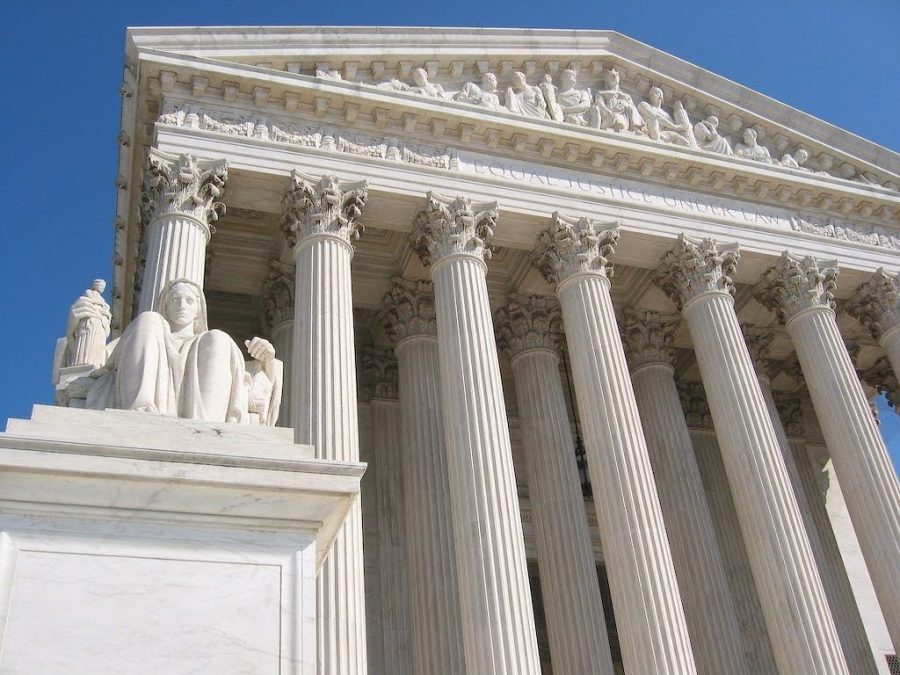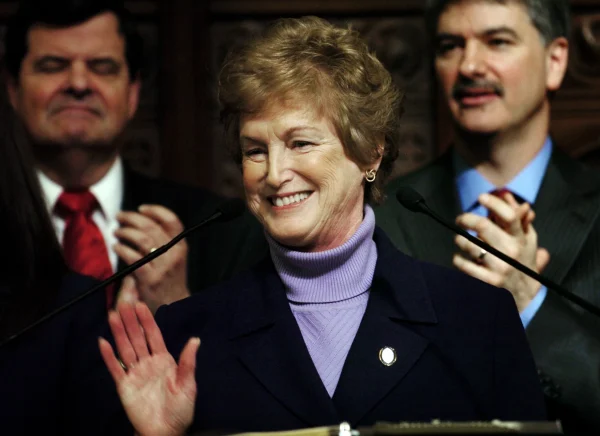Supreme Court heard oral arguments on abortion law and gun legislation: what you need to know
Photo courtesy of Creative Commons
The outside of the Supreme Court, Washington D.C.
On Nov. 1, the U.S. Supreme Court heard oral arguments for major cases pertaining to both abortion and gun control.
The Court heard arguments on Texas’ bill S.B.8, a law restricting women’s abortion rights and penalizing those deemed complicit in the act.
Arguments also emphasized important pieces of gun legislation, particularly the case between the New York State Rifle & Pistol Association and Robert Nash and Brandon Koch. The case argued against the constitutionality of a New York ban on carrying handguns outside.
Here’s what to know about each case:
S.B.8: Texas’ Abortion Law
S.B.8 directly contrasts the landmark 1973 case Roe v. Wade, which legalized abortion nationwide. If the bill is allowed to continue, it could act as a model for other states, potentially having future implications for women’s healthcare.
Regarding the controversial Texas abortion law that restrics the rights of women to get abortions and penalizes the providers of these abortions, the Supreme Court is hearingd arguments on the structure of the law.
According to CNBC, those who are speaking against the law are from the Department of Justice, as well as other abortion providers who have already sued Texas officials.
As arguments have been made, some justices have expressed concern that allowing the Texas law to stay could have future implications on other constitutional rights, such as other states using this type of law as a model.
Because of this, multiple justices say that the structure of the Texas bill is subject to change; however, many still express concern about the future of Roe v. Wade, and whether that law will hold up, according to Time.
Gun Legislation
In addition to arguments made on strict abortion laws, the Supreme Court also heard individuals discussing the New York gun law that has effectively banned carrying handguns outside of one’s home. The argument in this case relates to the Second Amendment of the U.S. Constitution, and the extent to which individuals have the right to bear arms. Challenging the New York law could have future ramifications for gun legislation, making it harder for states to impose restrictions on carrying.
According to CNN, justices expressed concerns that the New York Law is too broad and doesn’t apply to all situations. However, they said that gun restrictions work well in certain areas, like on public transportation or schools.
Because of this, the Supreme Court may strike down the law and allow guns to be carried in particular situations, although a verdict has yet to be determined.
The Verdict
Overall, the Court is leaning toward striking down parts of the Texas abortion law, while also striking down parts of the New York gun law.
Respectively, the Court’s decision on S.B.8 could set a precedent on state laws restricting citizens’ constitutional rights. Their decision on the New York gun law could increase Second Amendment rights, allowing individuals to open carry in certain situations.
The Biden Administration has taken a strong stance on both of these issues. Regarding the Texas abortion law, they have argued that allowing it to stand could have an impact on other laws, and on constitutional rights in general.
They have also backed the New York gun law, and in a brief given to the Court, said that the right to carry is “not absolute.”

Samuel Weinmann is a passionate journalist who is a junior international affairs major at the University of New Haven. As the editorial head of the Charger...




